

Below is a sample of the emails you can expect to receive when signed up to monell center.
|
|
|
|
 |
|
|
Thank you for joining our mailing list!
Keep an eye out for news from behind the golden nose at the Monell Center.
And if you want to start reading about our taste and smell research right now:
|




|
|
|
DECEMBER 2019 THE MONELL CONNECTION NEWSLETTER OF THE MONELL CENTER Welcome to the latest edition of the Monell Connection! The holidays are here, and with the New Year in sight, we have several bits of exciting news to share with you. Read on to learn more about our new discoveries and how we share them with the world.
Thank you for being a part of our community.
Happy New Year, 
Robert Margolskee, MD, PhD
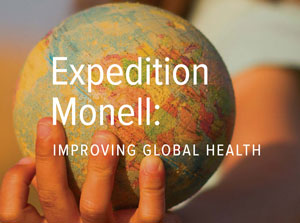
A Look at the Past Year Our 2018-19 Annual Report describes Monell’s continued explorations into the ways taste and smell affect our lives and our health. Read More
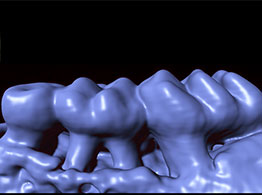
Guardian of the Gums Newly discovered chemical-sensing cells in the gums protect the mouth by standing guard against infections that damage soft tissue and destroy the bone that supports the teeth. Read More
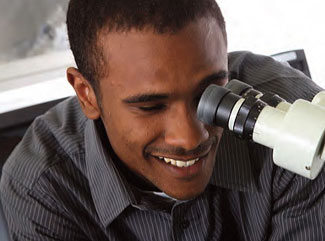
Monell Apprenticeship 2020 The Monell Science Apprenticeship Program brings high school and undergraduate college students to the Center each summer. We are currently accepting applications for the Summer 2020 eight-week, paid internship. Read More
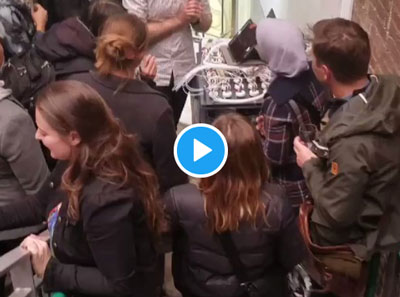
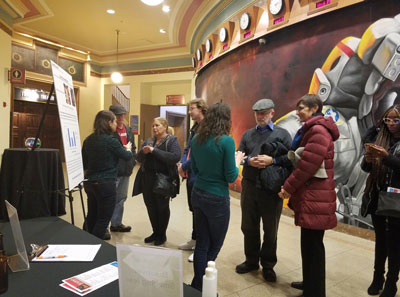
Monell in the Community Monellians can often be found outside the Center sharing their knowledge about the biology of taste and smell and how it is intertwined with everyday life. This past fall Pam Dalton added scent to a University of the Arts & Arts Alliance week-long event called Temporary Liveness. Famed author Bill Bryson prominently mentioned Monell in his new book, The Body: A Guide for Occupants, and visited the Free Library in Philadelphia in October on his book tour. In November, Joel Mainland mixed and shared scents with his traveling olfactometer at the launch of a new fragrance by Guggenheim Fellow awardee Anika Yi. And rounding out the year, Monell staff and postdocs shared the science behind the scent of stress at the last Franklin Institute Science After Hours program of 2019, which was based on the holiday classic Home Alone.

Your opinion matters. Tell us what you think of this email.


Our Contact Information
|
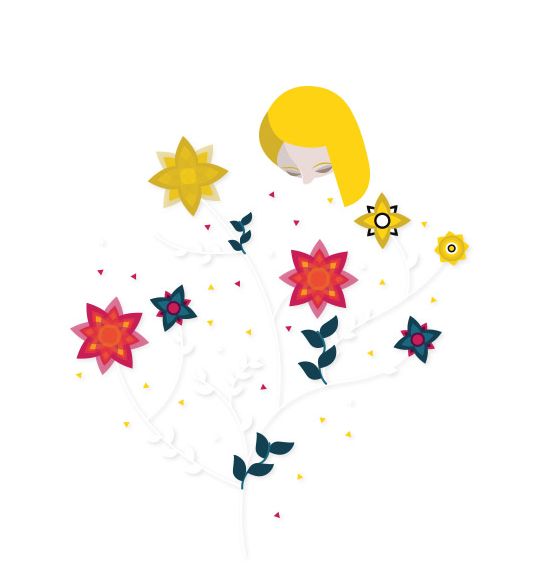
At Monell, we are all explorers, working to understand the function of taste and smell and their role in our health and well-being. Please support our vital work to find cures for smell loss by making a tax-deductible contribution today.
Donate Now
Our Contact Information Monell Chemical Senses Center 3500 Market Street 267-519-4700 http://www.monell.org/
Unsubscribe | Manage email preferences
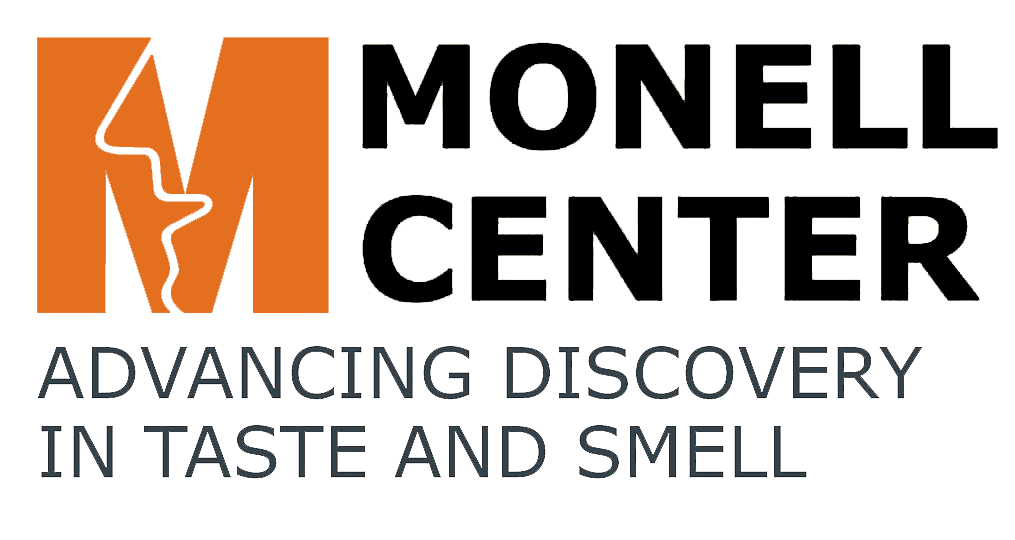
|
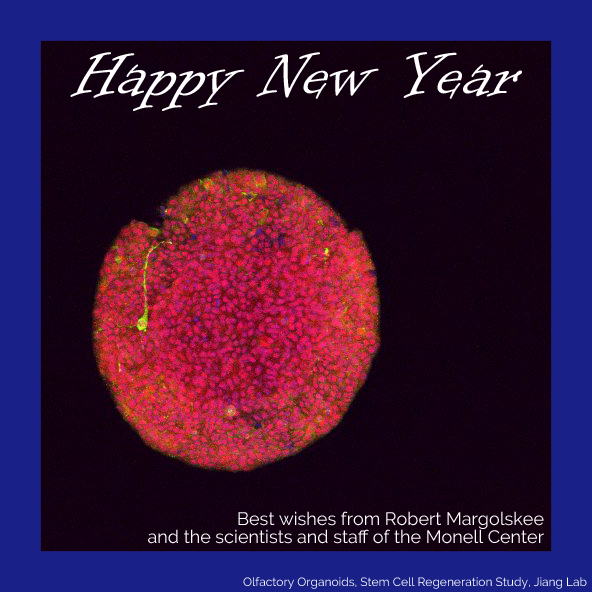
Our Contact Information Monell Chemical Senses Center 3500 Market Street 267-519-4700 http://www.monell.org/
Unsubscribe | Manage email preferences
|
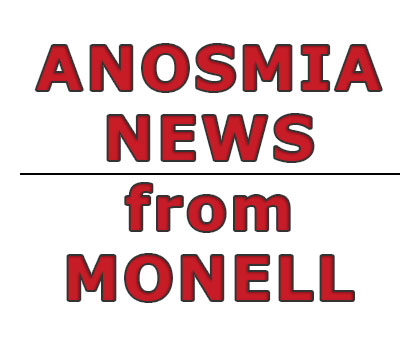
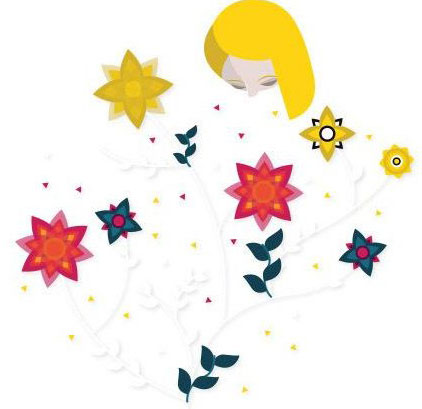
January 2020 Welcome to the latest issue of Anosmia News from Monell.
The scientists at the Monell Center are dedicated to advancing the understanding of taste, smell, and related senses, and our broad research portfolio includes three separate projects on anosmia - the loss of the sense of smell. These projects are our hallmark regeneration study, discovering genes responsible for smell loss, and investigating new smell training and brain stimulation methods to enhance a diminished sense of smell. You can read more about some of this research in past Anosmia Newsletters, found here.
Anosmia Research Update Monell is part of a wider scientific community seeking information about, and treatments for, anosmia. We wanted to share some information about recent anosmia research developments.
Several new academic studies on smell loss have been published in the last few months of 2019, giving the scientific community and patient groups new hope to advance the field in 2020. For example, an otolaryngology research team from the Harvard Medical School described a new approach to possibly restoring the loss of smell in International Forum of Allergy and Rhinology, which they likened to a “cochlear implant” for the nose. 
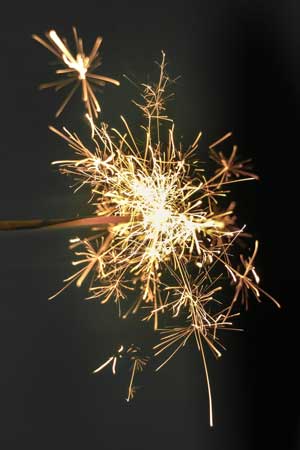
Therapeutic options to combat anosmia are limited, but electrically stimulating the smell center in the brain may have potential. The Harvard group conducted a pilot study to see if smell could be artificially roused by exciting the olfactory bulb in people. Five subjects with intact smell took part by having electrodes placed along a thin bone separating the olfactory bulb from the nasal and sinus cavities, called the cribriform plate. Three of the five reported perceiving odors such as onion and fruit when the electrodes were activated. This is the first account of inducing smell using electrical stimulation of the olfactory bulb, and the authors say it supports the feasibility of developing an olfactory implant. An article in Harvard Otolaryngology notes that this proof-of-concept study opens the door to extend the research to include anosmics, albeit in the long run, a nasal implant may be more difficult to develop than a cochlear implant. Progress in the field is also taking place in model organisms. Researchers from the University of Miami Miller School of Medicine published a study in Stem Cell Reports that describes how a stem-cell-based method can restore smell in mice with experimentally induced anosmia. They demonstrated that purified, olfactory stem cells delivered to the nasal passages could produce functioning olfactory neurons. The investigators hope this work will provide a basis for growing adult sensory progenitor cells to test for potential therapies in humans.
Publishing in Chemical Senses, researchers from Kanazawa Medical University in Japan took a different approach to tissue regeneration. Using mouse and cell culture experiments, they investigated the effects of a traditional Japanese Kampo therapy for treating post-viral anosmia. They identified specific chemical components of Kampo that seem to promote regeneration of olfactory neurons by increasing expression of nerve growth factors in the olfactory bulb.
A study in Molecular Neurobiology conducted by a team of investigators from several ENT clinics in Spain looked at how olfactory training improved rodents' ability to smell after experimentally induced olfactory dysfunction. The team found that one week of olfactory training enabled the animals to complete olfactory tasks at levels equivalent to those seen before dysfunction was induced. They attribute this result to an increase in dopamine-producing olfactory interneurons, cells that transmit impulses between other neurons. The provides a possible physiological mechanism to explain the efficacy of olfactory training.
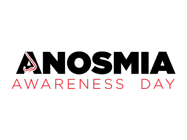
Logo by Daniel Schein Anosmia Awareness Day is Coming February 27 is Ansomia Awareness Day. The researchers at Monell are pleased to join patient advocates around the world in pushing for greater awareness of this condition. Keep an eye out for more from Monell as we get closer to February 27.
Recipe: The Anosmia Sandwich Leah Holzel, a multidisciplinary culinary professional and food journalist, lost her sense of smell in 2016 following an upper respiratory infection and turned her focus to designing recipes for anosmics. After Leah connected with the scientists at Monell to learn more about anosmia, we partnered with her to bring you some of her amazing recipes.
In the spirit of 2020 and the sense of discovery a new year brings, she shares the first recipe she wrote at the beginning of her smell loss: The Anosmia Sandwich.
Read and download Leah's The Anosmia Sandwich recipe here. 
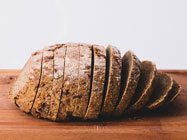

Are you having trouble explaining what anosmia is? This site can help.
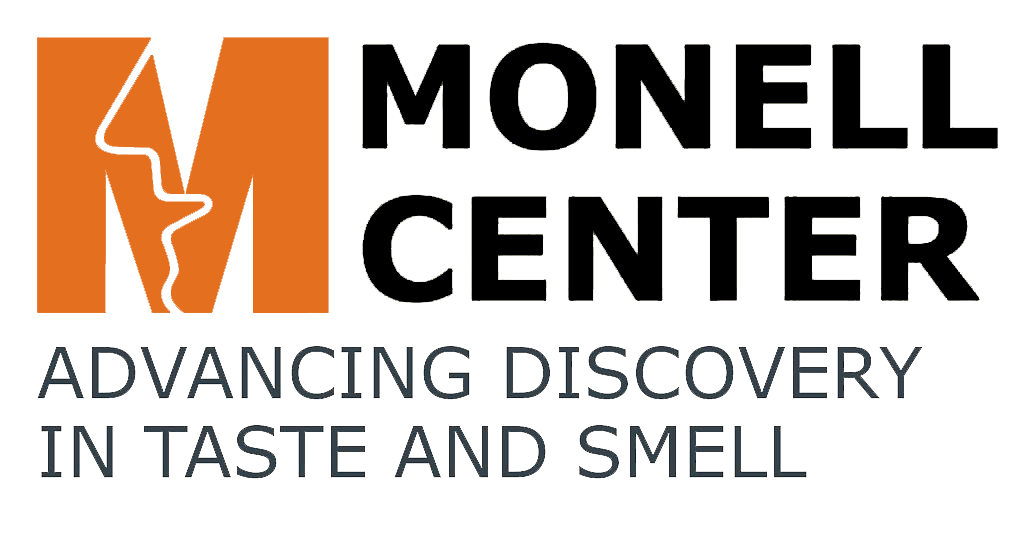
Our Contact Information
|
|
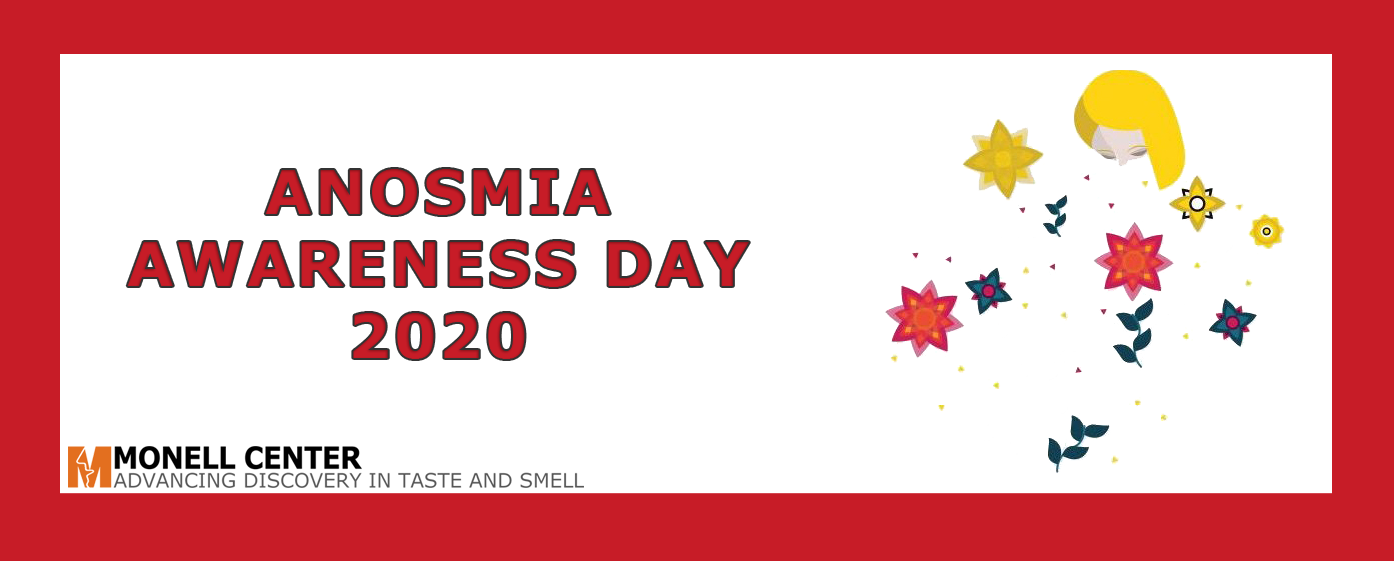
February 20, 2020
Dear Dennis:
Anosmia Awareness Day is February 27th and here’s a sneak preview of what to expect from the Monell Center: 
Screen a new video that introduces you to the olfactory scientists seeking treatments for smell loss Learn about how you can become a stronger voice for yourself and the worldwide community of people living without smell 
Join the conversation on social media #AnosmiaAwarenessDay Look out for an email from us in one week! 
Jenifer Trachtman Director of Development
Our Contact Information Monell Chemical Senses Center 3500 Market Street 267-519-4700 http://www.monell.org/
Unsubscribe | Manage email preferences
|

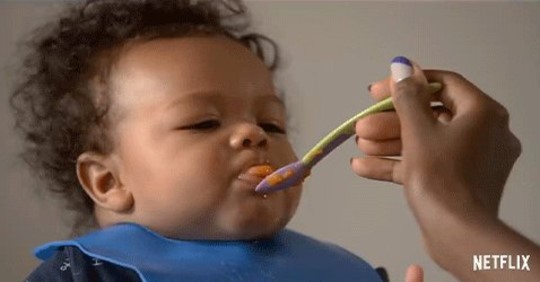
Monell Chemical Senses Center Research Monell research on the senses is featured in Part 2 of the popular Netflix series, Babies. The second set of six episodes is going live today, Friday, June 19th.
The series follows fifteen families from around the world during the first year of their babies'' lives. Each episode focuses on a different aspect of a baby''s development and includes extensive interviews with early-childhood development experts.
The third episode of Part 2, "Senses," which highlights Monell research, is being aired for the first time this Friday. Part 1 of Babies initially aired in February 2020 and is on Netflix''s list of most-watched shows.
View a trailer for the series here.
What Babies Know Movement Senses Relationships Nature & Nurture Toddlers
Our Contact Information Monell Chemical Senses Center 3500 Market Street 267-519-4700 http://www.monell.org/
Unsubscribe | Manage email preferences
|
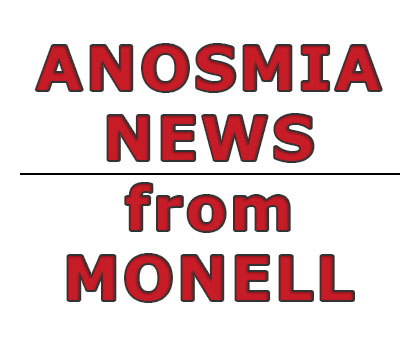
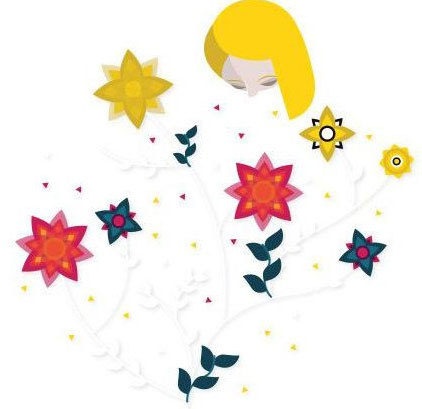
September 2020 Welcome to the latest issue of Anosmia News from Monell.
Research Roadmap for the Future We know that smelling can be a frustrating topic for many of you, but did you know that over 12% of the U.S. population will experience some type of loss of smell and taste? Even so, long-term, effective treatments are elusive.
Monell, together with the University of Florida Center for Smell and Taste and the Rocky Mountain Taste and Smell Center at the University of Colorado School of Medicine, hosted the "Identifying Treatments for Taste and Smell Disorders" conference in November 2018. This two-day conference was funded by the National Institute on Deafness and other Communication Disorders, Kerry, and others. This gathering was a first-of-its kind event that included multiple international researchers, patients, and clinicians. The conference's outcomes were summarized in a review paper published in July 2020 in the journal Chemical Senses and available here in full. 
Suggested next steps from the meeting are focused in three areas: On the awareness front, there is now a group of individuals forming the first U.S.-based anosmia awareness advocacy organization, with Monell serving as scientific advisors. More updates on this to come in the next newsletter.
The suggested clinical approaches include mining big data sources such as electronic health records, better communicating with primary care physicians, and finding new ways to evaluate chemosensory disorders, all to bring quicker solutions to solving health issues related to smell loss. The Changing the Conversation virtual panel discussion in April 2020 started the dialogue between patients and scientists in advancing smell loss research.
Immediate basic research priorities include expanding our understanding of specific responses of chemosensory cells and developing assays to identify and document cell development, regeneration, and function. To that end, Associate Member Hong Wang, PhD, recently began a new study looking for potential treatments for anosmia caused by respiratory viral infection, which was made possible by the support of our generous donors. Other new studies will be added as funds are raised.
Brain and Behavior Changes with Anosmia, with Johan Lundstr?m Wiring in the brain can be altered by deficits in the ability to smell, but what other physical changes can occur? Associate Member Johan Lundstr?m, PhD, and faculty in Clinical Neuroscience at the Karolinska Institutet in Stockholm, Sweden, recently demonstrated that a life without smelling any odors (congenital anosmia) does not lead to widespread changes in the structure of brain areas governing smell, only in the orbitofrontal cortex, which is contradictory to what has been seen in similar studies on sight and hearing. Similarly, a follow-up study, currently in preprint form, on the same population of people with congenital anosmia did not find any change in connections between neurons in olfactory areas at rest. Lundstr?m says that these results fly in the face of existing dogma in the field of neuroplasticity, which studies how the brain reorganizes itself by forming new neural connections throughout life. 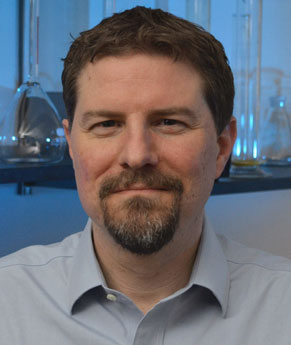
Dr. Johan Lundstr?m Both studies looked for how cortical areas of the brain that receive inputs from smell pathways might be altered in congenital anosmia. Humans become consciously aware of the sensory world when the cortex is stimulated. Using magnetic resonance imaging, Lundstr?m's team measured the size, shape, and nerve cell connections in olfactory brain areas. The preservation of certain smell-related areas in congenital anosmics may mean that someday the sense of smell could be restored if, for example, an odor-detecting device could directly stimulate the brain.
At Monell, he is examining behavioral and neural approaches to enhance the ability to smell odors with individuals who have lost the sense as adults. In one study, he is testing smell-training protocols in people with nasal polyps to determine which approach is best and most efficient at improving smell. In a second study, he is asking whether non-invasive electrical stimulation of olfactory brain areas enhances the sense of smell and how it contrasts with behavioral approaches such as smell training.
Real-time Resources and Research - Click here for a real-time COVID-19 Smell Loss tracker. Created at Monell, this tool allows researchers, and interested individuals such as yourself, who want to learn more about the relationship between smell loss and COVID-19 to stay up-to-date with global investigations on the pandemic. When the project began to gather information from published studies a few months ago, they were puzzled by the wide range of smell loss reported by others studying the same question, ranging from 5 to 98 percent. As of mid-August, they had catalogued results from 70+ studies of anosmia related to COVID-19. Follow along with us and please be patient - the page takes a moment to load. 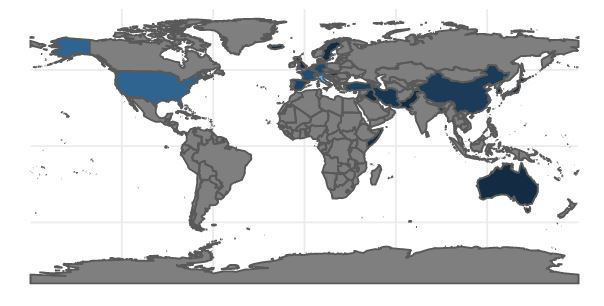
Studies from highlighted countries are included - Thank you! Last week we asked you to participate in a study. We were heartened that nearly 1,200 people took the eligibility quiz. If you were one of those and received a test kit in the mail, please complete the study no later than September 3rd.
- Please take a look at our COVID-19 Resources page, which is frequently updated.

Are you having trouble explaining what anosmia is? This site can help.
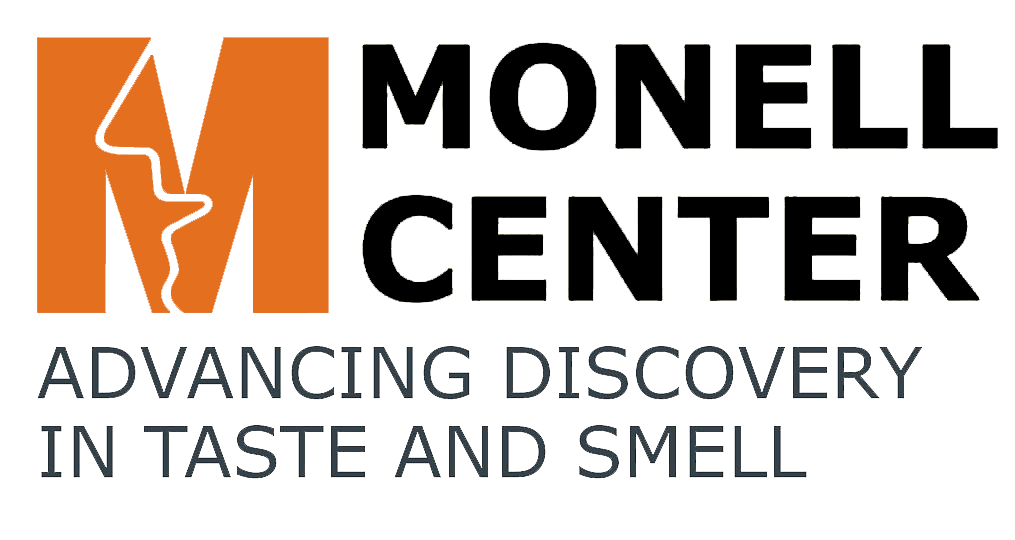
Our Contact Information
|
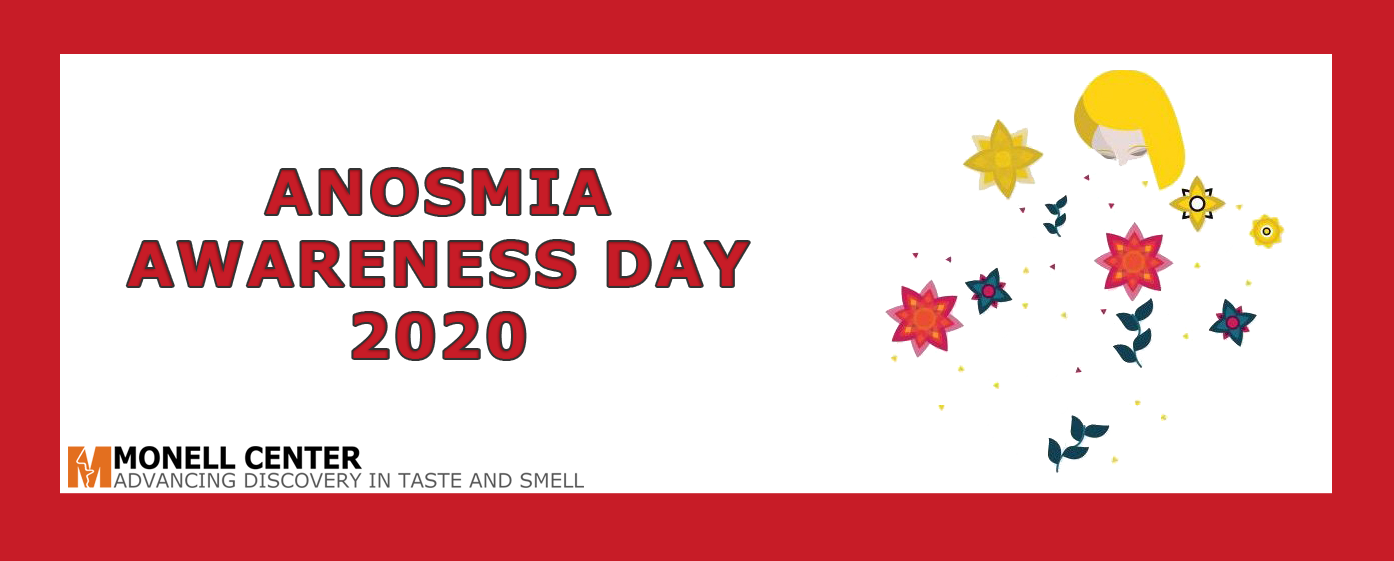
Today on Anosmia Awareness Day, the researchers at the Monell Center join with you and the worldwide community of people with smell loss to raise awareness about anosmia. Here are three calls to action to build awareness, educate, and raise funds for a healthier, fragrant, and more flavorful future.

As the world's only freestanding institute dedicated to taste and smell research, Monell takes its responsibility to you seriously. Or, in the words of Monell scientist Joel Mainland, "Right now, anosmics have little hope for diagnosis and treatment. We're determined to fix that." Meet Dr. Mainland and the rest of the research team seeking treatments for smell loss. 

We are pleased to open registration for a special panel discussion, Changing the Conversation: The Partnership of Patients and Scientists in Advancing Smell Loss Research. The panel features Chrissi Kelly of Abscent, Christine Broderick of the Patient-Centered Outcomes Research Institute (PCORI), Torryn Brazell of the American Tinnitus Association, and others to be announced.
Tuesday April 28, 2020 1:00 pm Quorum, 3675 Market Street, Philadelphia
Topics Include:


Here are just some of the conversations you might join today by reading, following, sharing, and liking using #AnosmiaAwarenessDay, #AnosmiaAwareness: Web Resources - Abscent - Anosmia Awareness - Anosmia Research at Monell - Fifth Sense - Girl Who Can''t Smell Facebook Resources - Abscent - Acquired Anosmia and Parosmia - Anosmia Awareness - Anosmics of the World Unite - Congenital Anosmia - Fifth Sense - Girl Who Can''t Smell - Living Well with Anosmia Tag @MonellSc
Our Contact Information Monell Chemical Senses Center 3500 Market Street 267-519-4700 http://www.monell.org/
Unsubscribe | Manage email preferences Questions? Contact Jenifer Trachtman jtrachtman@monell.org 267-519-4715
|
|
Secure the future of taste and smell. 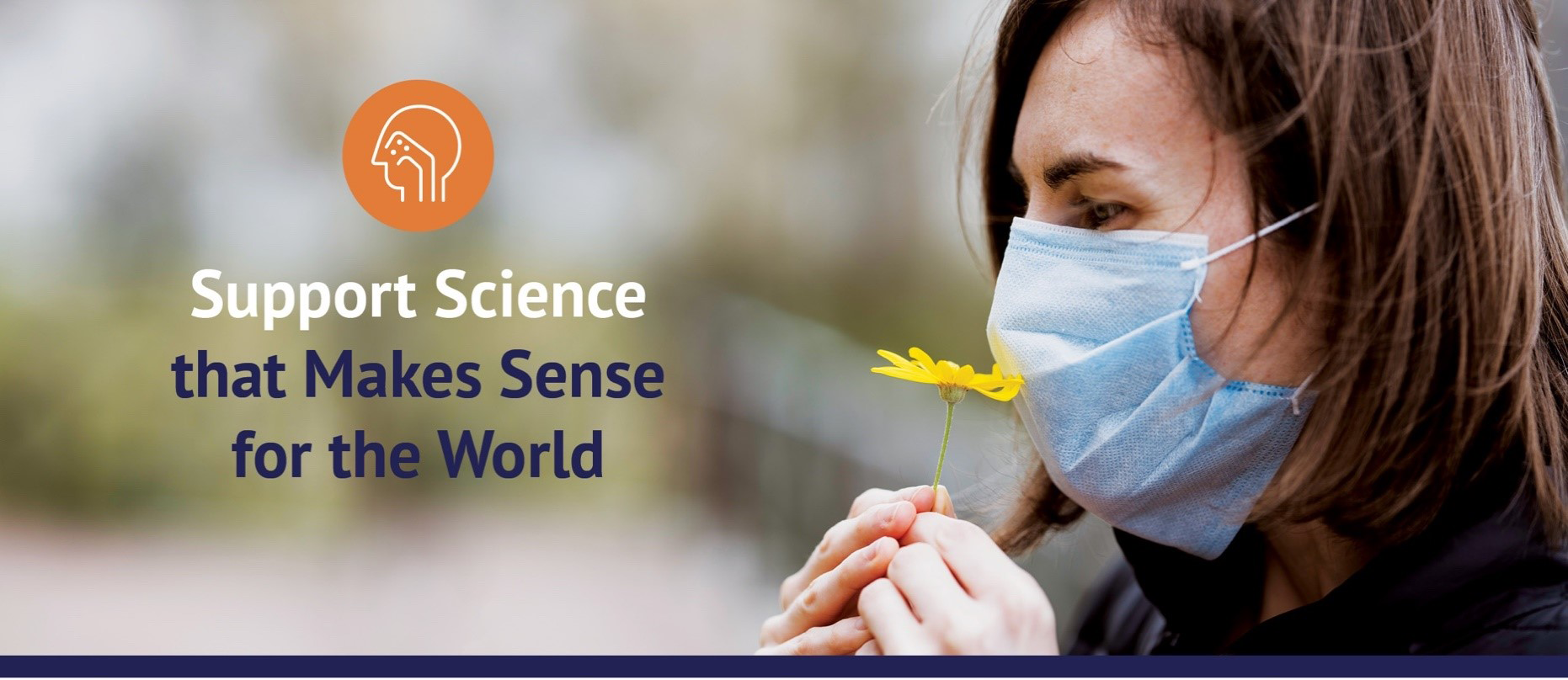
Dear Dennis,
This was a year when Monell science helped us make sense of our world.
These remarkable advances would not have been possible without our loyal donors. This is why I write today to ask for your year-end donation of $68 at this most critical time, as we rise to the challenge of creating a safer and healthier world for all. Why Monell? When you invest in Monell, you invest in groundbreaking science - guided by five core values: 




Why Now? Because taste and smell science is at the frontline of public health.
Please consider a special year-end gift of $68 to advance Monell's transformative science. Why $68? The Monell Center was founded in 1968 and your gift today honors our founding year.
As we close out the year that has been like no other, we ask you to join us to create a safer, healthier world.
On behalf of Monell's scientists, thank you for your generous support and partnership.

Robert F. Margolskee Director & President PS: Make your contribution by December 31st to receive a tax deduction for 2020. This year only because of the Cares Act, you can deduct $300 of charitable gifts without itemizing. 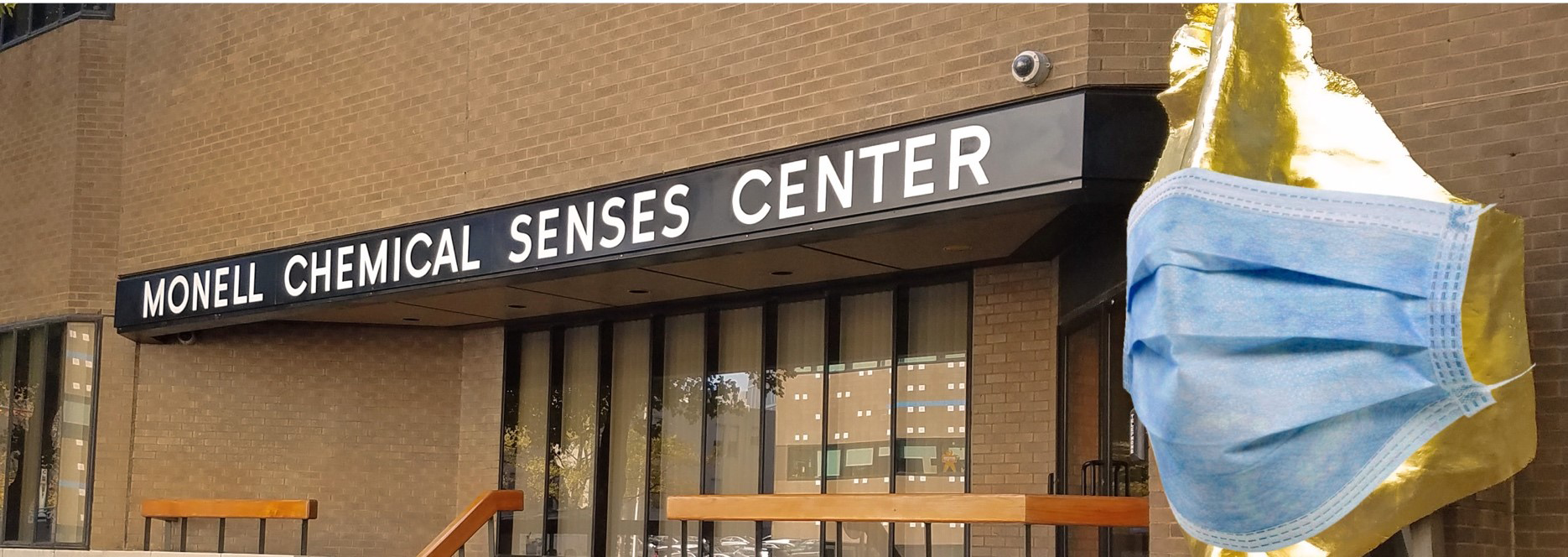
Our Contact Information Monell Chemical Senses Center 3500 Market Street 267-519-4700 http://www.monell.org/
Unsubscribe | Manage email preferences |
|
Secure the future of taste and smell. Dear Dennis,
Please consider a year-end gift today to advance the Monell Center's transformative science. 
Together with you, we can validate the test's ability to detect early indicators of COVID-19 infection, in preparation for widespread use. 
Together with you we can find new ways to limit the spread of disease from animal populations to humans, and prevent future pandemics. 
Together with you, we can use GCCR data to help us understand taste and smell loss caused by all types of respiratory illness. 
Together with you, we can continue to train the next generation of scientists. 
Together with you, we can save the lives of millions of children fighting HIV, malaria and other diseases. As we close out the year that has been like no other, we ask you to join us by making a contribution that will be immediately used to create a safer, healthier tomorrow.

Robert F. Margolskee Director & President Our Contact Information Monell Chemical Senses Center 3500 Market Street 267-519-4700 http://www.monell.org/
Unsubscribe | Manage email preferences |
|
Do forward to friends & family Dear Dennis:
Greetings from the Monell Center. Thanks to you, our scientists continue to carry out essential work to advance discovery in taste and smell, staying safe yet very much connected, and learning through this pandemic. First, take a look at the quick facts on smell, taste, and COVID-19 to the right. Because we know you are hearing a great deal about smell loss recently, we thought you''d
Second, your contribution to Monell is urgently needed. By donating today, Giving Tuesday Now, you will propel vital public health research forward, including understanding the connection between loss of smell and taste and COVID-19. 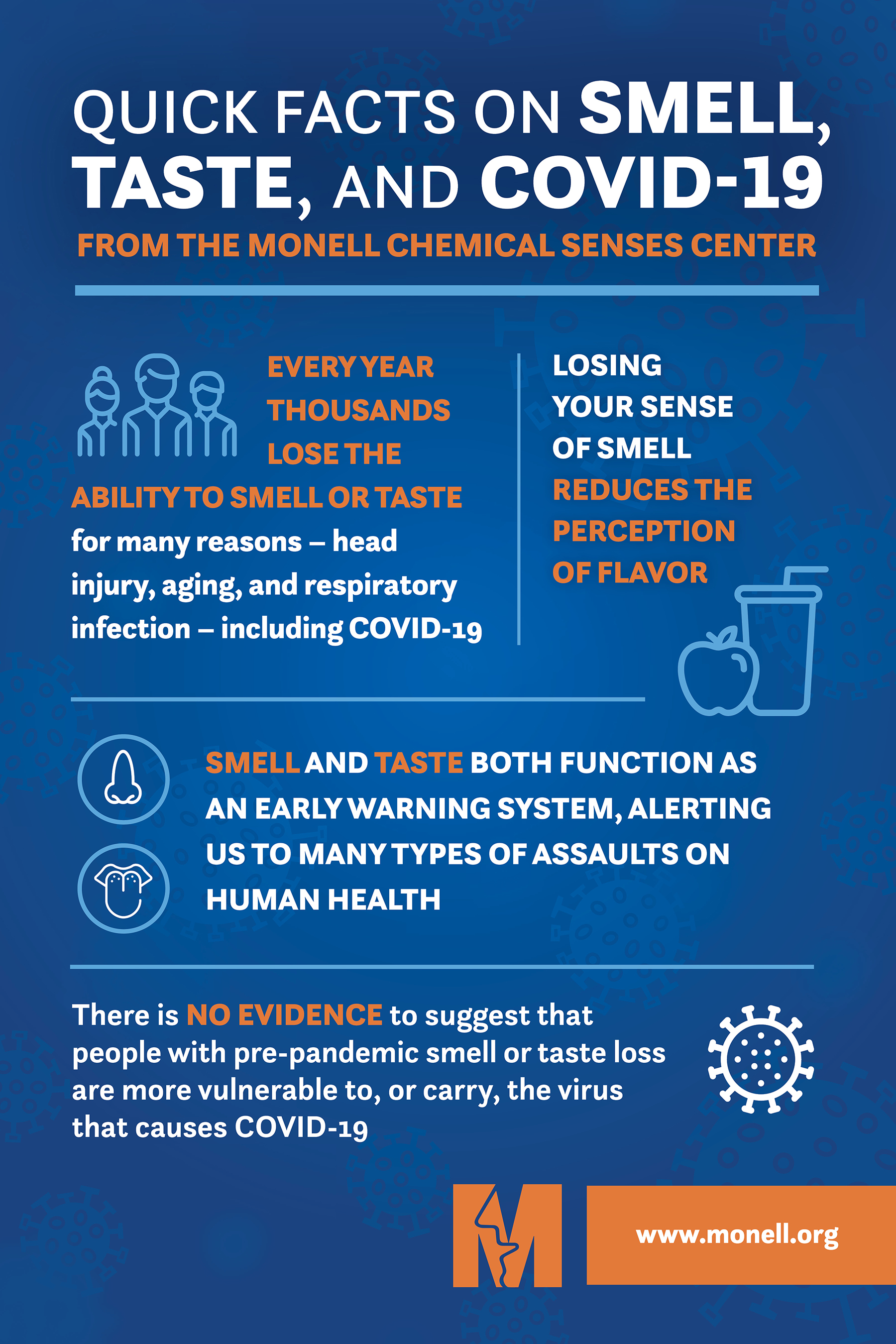
Third, to learn what you can do to help scientists gain vital data on smell and taste loss during this pandemic, please contact Jenifer Trachtman at 267-519-4715 or jtrachtman@monell.org.
Now, more than ever, being a champion of taste and smell science, quite literally, translates into health for us all. Thank you and stay well, 
Bob Margolskee, MD, PhD P.S. Today, Tuesday May 5, is #GivingTuesdayNow, a global day of unity and generosity in response to the COVID-19 pandemic. Please consider joining in this effort and including Monell among your philanthropic priorities. 
Our Contact Information Monell Chemical Senses Center 3500 Market Street 267-519-4700 http://www.monell.org/
Unsubscribe | Manage email preferences
|

Dear Dennis:
On Monday, the Monell Center reported to you about our work with the Global Consortium for Chemosensory Research (GCCR) whose current mission is to better understand how COVID-19 affects taste and smell world-wide.
A COVID-19 research taste and smell survey is now live and is meant to be completed by anyone with confirmed or presumed COVID-19 (coronavirus) or other upper respiratory illnesses (common colds or the flu).
Want to help? As a member of the Monell Center community, you can help by forwarding this email to your network and posting the link below to Facebook
Do you speak a language besides English? If you would like to volunteer to translate the survey, please get in touch with me. Take good care, 
Danielle R. Reed Associate Director reed@monell.org LINK TO GLOBAL COVID-19 TASTE and SMELL SURVEY Twitter: @GCChemosensoryR Facebook: https://www.facebook.com/GCChemosensoryR/
The Global Consortium of Chemosensory researchers is a group of transdisciplinary scientists, clinicians, and patient advocates founded in response to the COVID-19 pandemic. With more than 500 members (including several Monell Principal Investigators) the GCCR will harness their reach to conduct and analyze worldwide evidence-based information to combat the spread of COVID-19. Our Contact Information Monell Chemical Senses Center 3500 Market Street 267-519-4700 http://www.monell.org/
Unsubscribe | Manage email preferences |

Dear Dennis:
The Monell Center is closely monitoring developments surrounding the COVID-19 outbreak. We are taking the appropriate steps - consistent with public health recommendations - to help support the ongoing health and safety of our employees, corporate partners, donors, collaborators, test subjects and others who have a vested interest in our Center.
To reduce the spread of COVID-19 in Philadelphia, Monell is closing to visitors and the public as of Tuesday, March 17, 2020. All employees who can work remotely are required to do so until at least March 27, 2020. The annual spring colloquium for corporate partners in early April has a fully remote option. Interviews for our summer program for high school and college students will be conducted by video conference. Further, we are postponing all human testing until after the state of emergency has lifted.
It is likely that some ongoing scientific projects will be delayed. Our principal investigators are seasoned at leading their labs through numerous emergency situations and are being called upon to closely monitor their ongoing studies and the status of specific projects given the health crisis we are facing.
Please know that Monell is taking all precautions at this challenging time to keep our scientific enterprise strong. Stay well, 
Robert F. Margolskee Director & President Our Contact Information Monell Chemical Senses Center 3500 Market Street 267-519-4700 http://www.monell.org/
Unsubscribe | Manage email preferences |
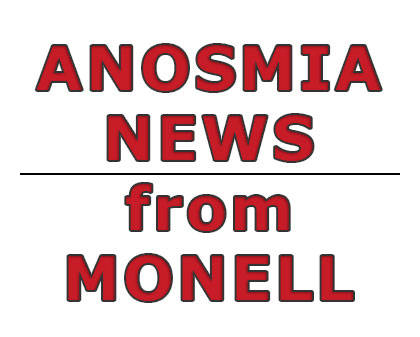
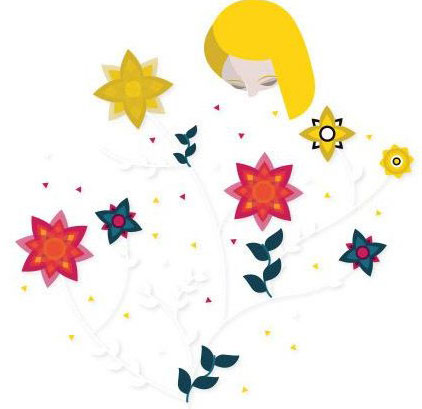
December 2020 Welcome to the latest issue of Anosmia News from Monell.
SCENTinel 1.0 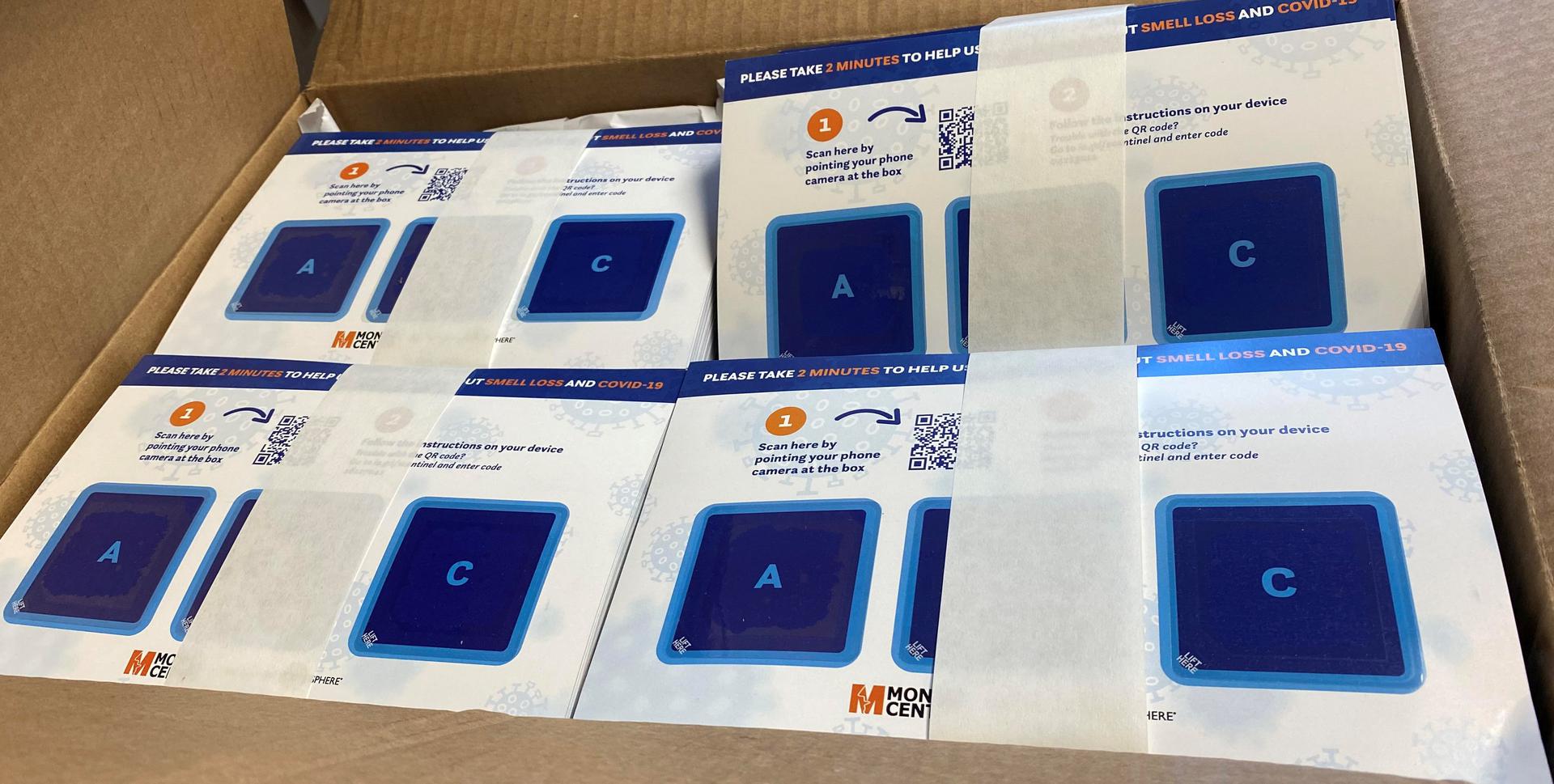
Thanks again to all who helped us gather preliminary data for validation of our early smell-test studies, now officially called SCENTinel. This test rapidly evaluates three olfactory functions (detection, intensity, and identification). Monell scientists evaluated whether self-administering SCENTinel can discriminate between individuals with smell loss (anosmics) and average smell ability (normosmics). The first paper on this work is now online as a preprint prior to official publication in a peer-review journal. The take-away message, for everyone, is that SCENTinel 1.0 is a practical test able to discriminate individuals with smell loss from others and is likely to be useful in many clinical situations, including COVID-19 symptom screening.
Meet STANA One year ago, a small group gathered in the home of Marj Rosner to discuss Monell's anosmia research. That dinner began conversations about the development of the first smell and taste patient advocacy group in North America, now known as STANA (the Smell and Taste Association of North America). The founders are Rosner, Katie Boateng, and Pamela Silberman, each of whom connected to Monell 
through their battle with smell loss. Monell's Nancy Rawson and Jenifer Trachtman serve as advisors to the group. STANA joins sister organizations AbScent and FifthSense in the United Kingdom, among others in Europe. Please join the STANA list or email info@thestana.org with your questions.
New Look for Monell Sites 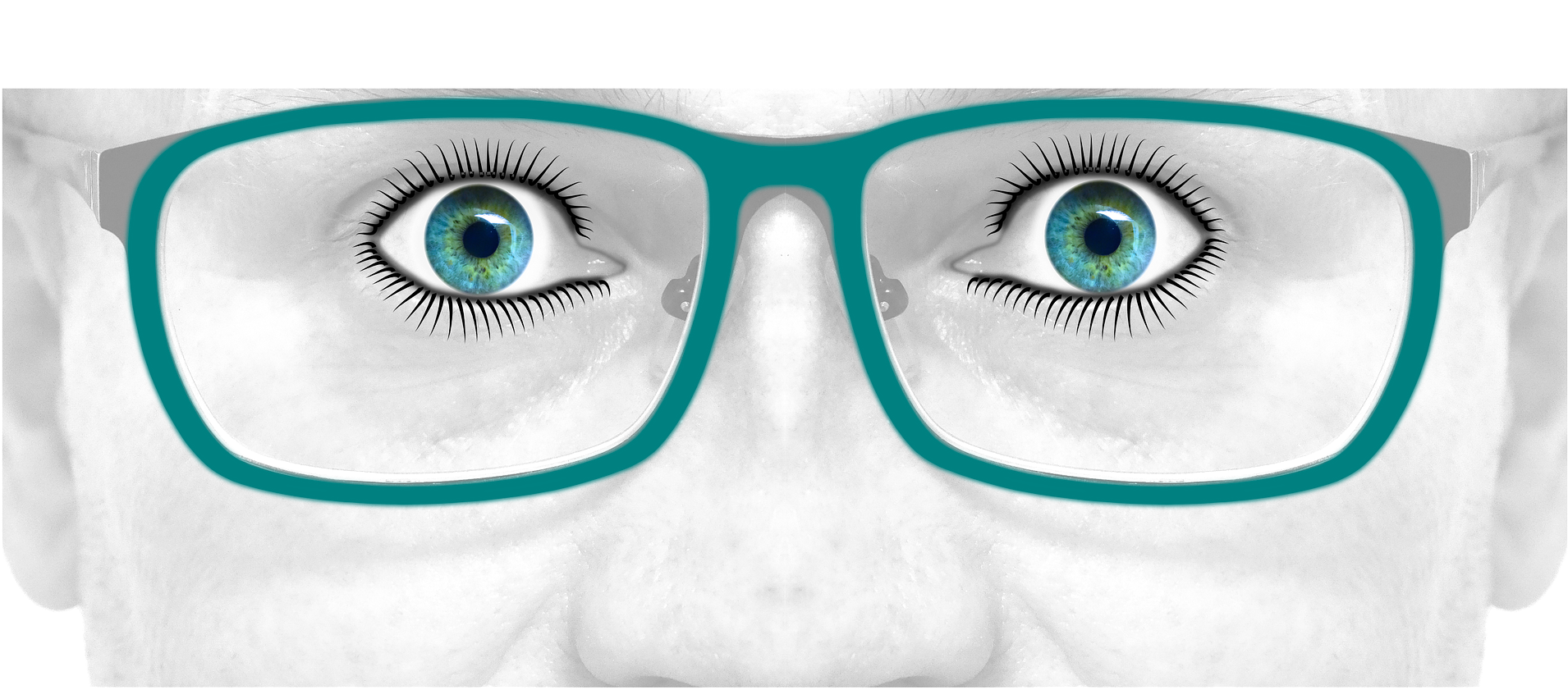
Please take a look at the Monell Center's 2019-2020 Annual Report, "Making Sense of the World," our first all-digital publication, which was released along with our newly redesigned website. And, we have gathered all our smell-loss related resources in one place: The Monell Anosmia Project page. We welcome your thoughts - please send feedback to kkreeger@monell.org.
Ongoing Research 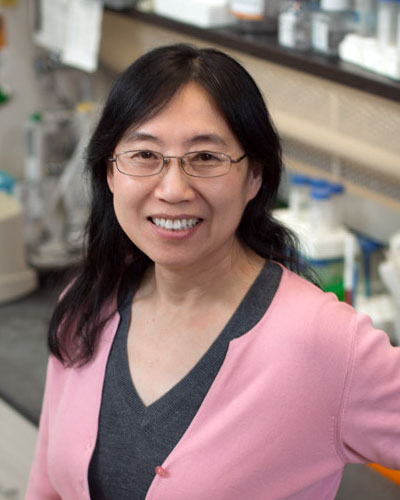
The COVID-19 pandemic has keenly highlighted the prevalence of viral-induced anosmia. Building on previous work by Monell scientist Dr. Hong Wang on the relationship between inflammation in the nasal cavity and age-related smell loss, she is continuing her work on the molecular biology of smell. Dr. Wang's new study aims to better understand how tissue injury and inflammation from viral-induced smell loss alters cell regeneration in the olfactory system. We will report back as her research progresses.
Industrial Design Student Requests Help from Anosmics Sharon Wong, a graduate student in industrial design at the Academy of Art University in San Francisco, is looking for people with anosmia to participate in a survey about their experience with olfactory loss. The project involves designing a product that will help people who suffer from smell loss as 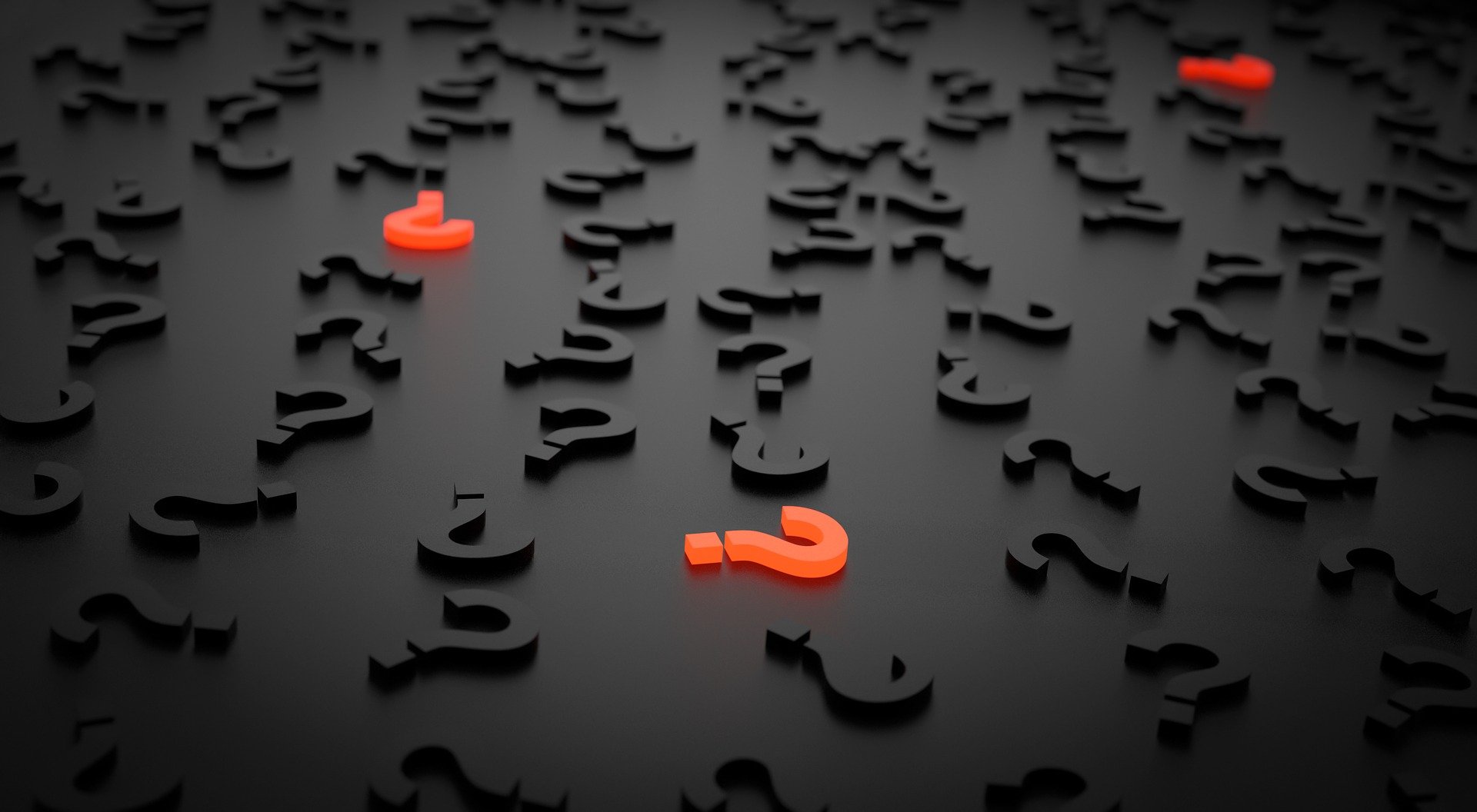
it relates to malnutrition. Please contact her directly at swong2@art.edu or text at (650) 817-5282 to learn more.

Are you having trouble explaining what anosmia is? This site can help.
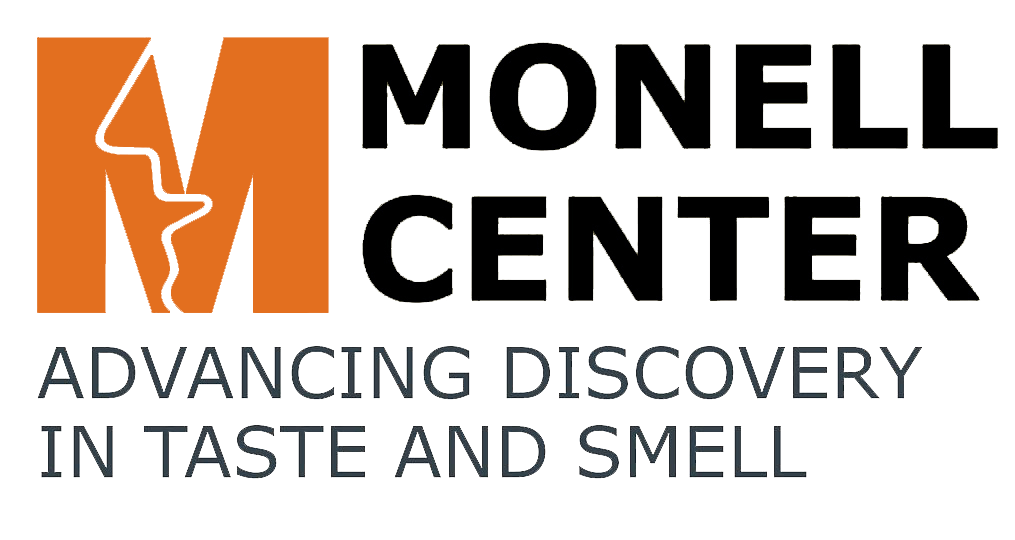
Our Contact Information
|

Dear Dennis:
The Monell community wishes safety and good health to you and your loved ones during this time of uncertainty.
Over the last few days, there has been a great deal written about the connection between smell and taste loss and COVID-19. I know that you share our interest in this global issue. Below are two ways that you can get involved and learn more.
COVID-19 Global Consortium
Several Monell scientists are part of a Global Consortium for Chemosensory Research (GCCR) that mobilized over the last week. The group''s goal is to understand reports of chemosensory issues related to COVID-19 on a global scale. This work is quickly evolving. The most immediate way to keep up to date is to follow this twitter feed. Beginning next week we will be sending you news about the group''s efforts. Please read our updates and share widely with your networks so we, as a community concerned with smell loss, can create more awareness of its role in worldwide public health.
Anosmia Awareness Panel Discussion (with COVID-19 update)
Monell is hosting a panel discussion on April 28th at 1:00 pm on the partnership of patients and scientists in advancing smell loss research. This panel was originally scheduled as an in-person/recorded event but it will now be fully remote. The panel will include a special section on the COVID-19 Global Chemosensory Consortium. Read more below and register for this free worldwide discussion about smell loss.
Although we may be physically distanced now, we are still very much socially engaged. Together with you, we are working to advance scientific knowledge about smell loss, build awareness about this vitally important public health issue, and contribute to worldwide health and well-being.
On behalf of all our scientists and staff, be safe and be well, 
Jenifer Trachtman jtrachtman@monell.org 267-519-4715
Changing the Conversation: The Partnership of Patients and Scientists in Advancing Smell Loss Research
Topics Include
Panelists
Torryn Brazell, Executive Director and COO of the American Tinnitus Association (ATA). ATA was founded in 1971. Torryn will share lessons learned from another underappreciated disorder. She will address how the tinnitus community successfully built awareness and name recognition and provide translatable tools for how patients and researchers/clinicians can collaborate to make a real difference in patient health outcomes.
Christine Broderick, Engagement Officer with the Patient-Centered Outcomes Research Institute (PCORI) in Washington, DC. Christine will discuss how to become engaged in patient-centered outcomes research, describing the resources available through PCORI. She will also share examples of how engaging patients and other stakeholders in PCOR can make a meaningful difference in research and help give patients and caregivers the information they need to make important healthcare decisions.
Chrissi Kelly, smell loss patient advocate and founder of abscent.org in the UK. Chrissi will describe her progression from patient to patient advocate. She has a dual focus of providing immediate support to those experiencing smell loss and building worldwide awareness that will accelerate the pace of the research.
Dr. Edmund A. Pribitkin, an ENT-otolaryngologist in Philadelphia and Chief Medical Officer of Thomas Jefferson University Hospitals. He received his medical degree from Perelman School of Medicine at the University of Pennsylvania. Dr. Pribitkin is a longtime collaborator with the Monell Center and will discuss patient-centered approaches to causes and treatments for anosmia.
Panel moderator: The Smell Podcast's Katie Boateng
The panel discussion will be followed by a special update on the COVID-19 Global Chemosensory Consortium and an overview from Monell's Dr. Joel Mainland and Dr. Danielle Reed of their Gaps and Opportunities paper. This paper comes out of the Identifying Treatments for Taste and Smell Disorders (ITTSD) conference Monell hosted in 2018 along with the University of Colorado and the Center for Taste and Smell at the University of Florida.
There will also be an optional smell loss support discussion with Chrissi Kelly from 3:00 to 4:00 pm. Our Contact Information Monell Chemical Senses Center 3500 Market Street 267-519-4700 http://www.monell.org/
Unsubscribe | Manage email preferences |
|
Rapid Smell Test to Screen for COVID-19 
Dear Dennis:
Last week we asked you to consider participating in a validation study of a Rapid Smell Test to screen for COVID-19. Nearly 1200 people took the eligibility quiz! We are heartened at this outpouring of interest.
Sincerely, 
Pamela Dalton and the Rapid Smell Test Team Our Contact Information Monell Chemical Senses Center 3500 Market Street 267-519-4700 http://www.monell.org/
Unsubscribe | Manage email preferences |

Dear Dennis:
He was a leader in the quest for early diagnosis of disease, an ambassador to patient communities, and a true humanitarian.
Please read more about Dr. Preti's career and impact on the larger scientific
A memorial celebration of his life and work is being planned. With best regards, 
Robert F. Margolskee Director & President Our Contact Information 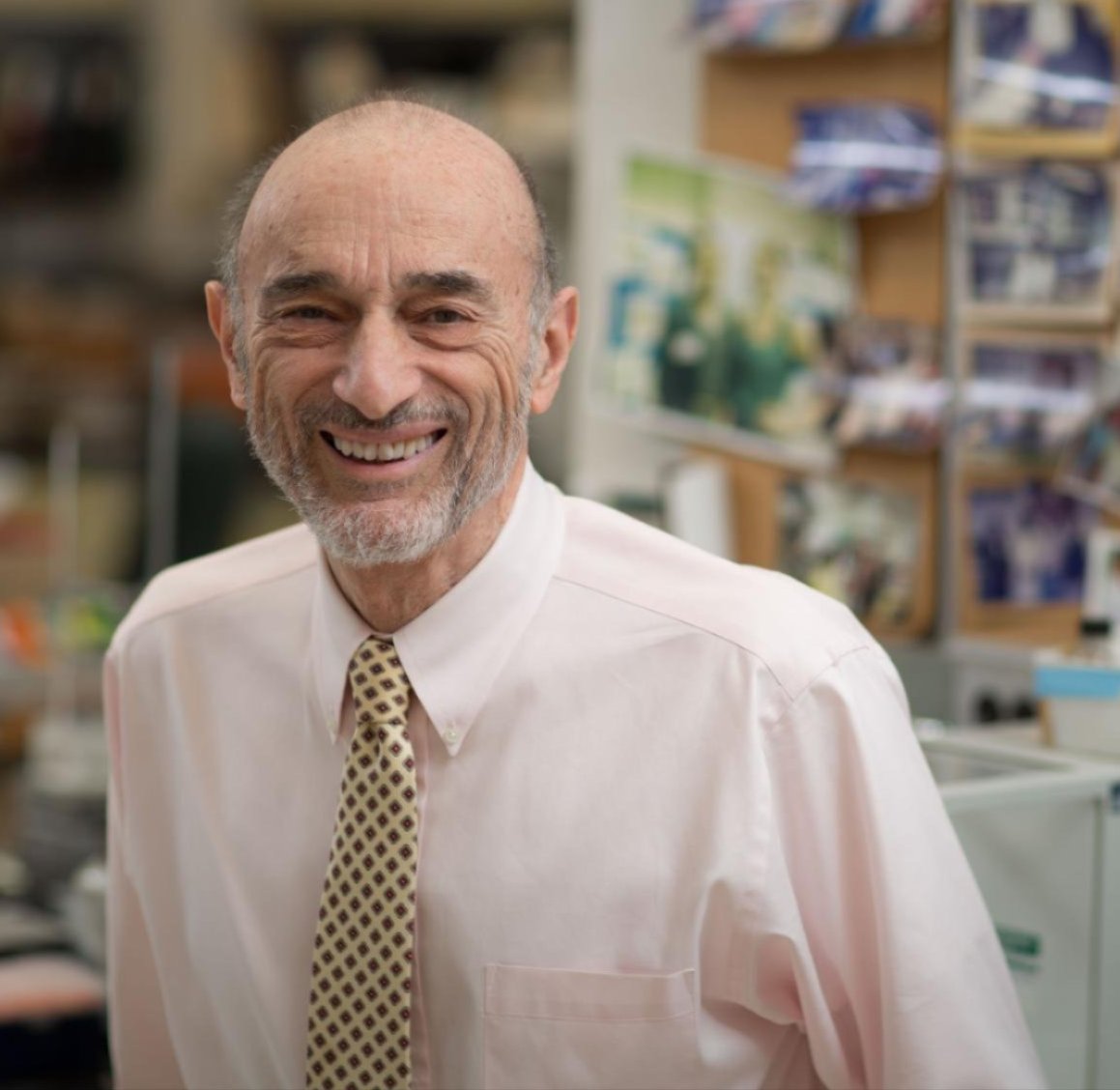
George Preti, 1944-2020 |
|
APRIL 2020 THE MONELL CONNECTION NEWSLETTER OF THE MONELL CENTER Professionally, this time is as challenging as any that Monell, as an institution - or any of us individually - has ever experienced. As we learn and adapt, I express my gratitude above all for the dedication and patience of our faculty, staff, donors, corporate partners, funders, and friends all over the world. This touches us all.
We will all grow from this communal experience and together move forward. With deepest appreciation, I thank you for all you have done and continue to do for Monell. Be well and stay safe. 
Robert Margolskee, MD, PhD
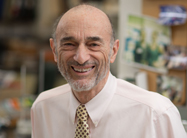
During Isolation We Remember... As Monellians closely monitor developments on COVID-19, we still grieve the loss of beloved scientist George Preti. We remain actively engaged in planning an in-person memorial to his life and research for a future date, fundraising for the Preti Analytical Chemistry Core, and sharing stories about working with George - for example, see articles in the New York Times and The Scientist.
Read More
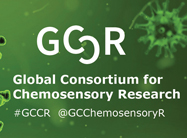
In the Thick of It Monell is taking an active role in the newly formed Global Consortium for Chemosensory Research. #GCCR unites chemosensory scientists worldwide to understand reports of COVID-19 chemosensory issues & advance science in the chemical senses. Read More
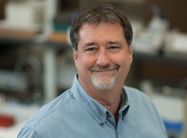
Infectious Disease Experts in our Midst: A Q&A with Bruce Kimball We recently had an email chat with chemical ecologist Bruce Kimball, who recently joined Monell full-time after years of working jointly for the USDA and Monell. We asked about how his work dovetails with the COVID-19 pandemic and other infections.
Read More

Your opinion matters. Tell us what you think of this email.


Our Contact Information
|
|
3 Days, 3 Reasons 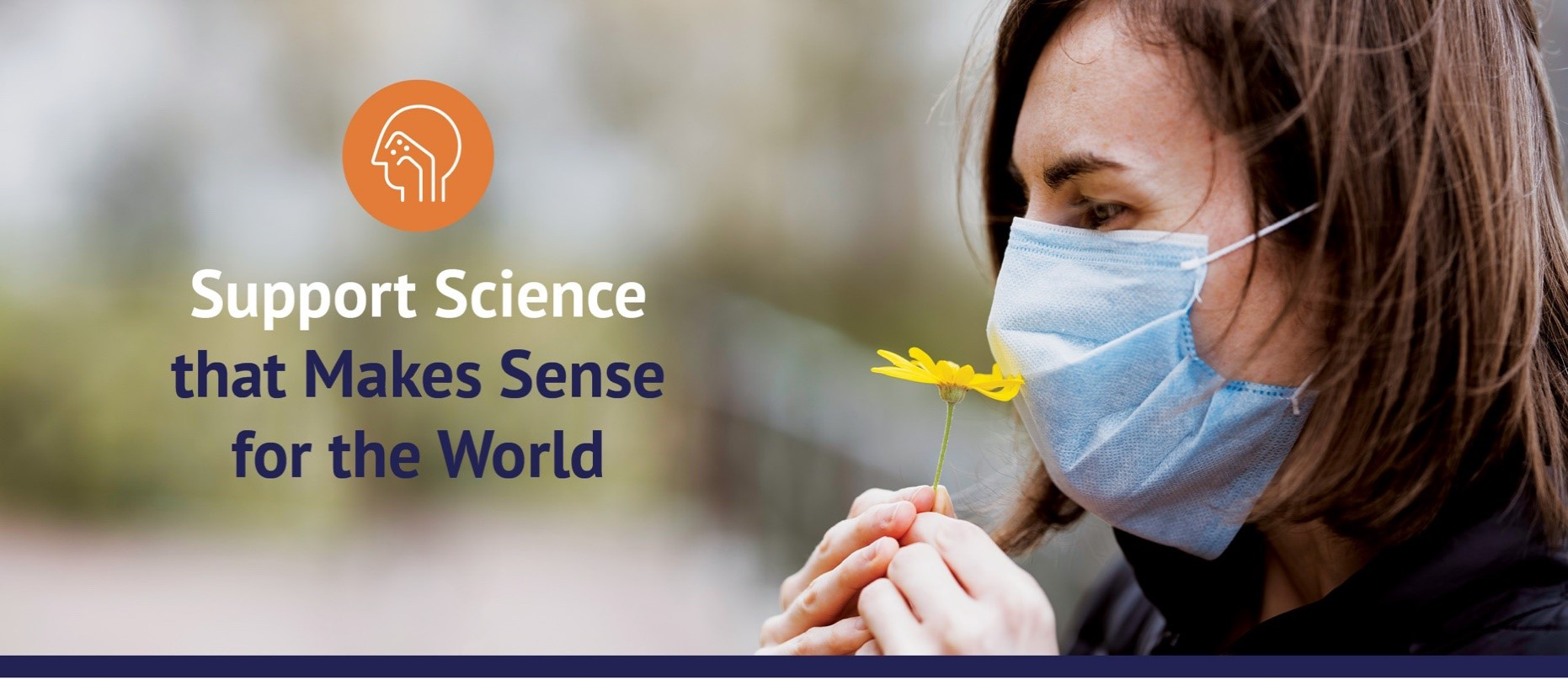
Dear Dennis,
Your contribution to taste and smell research is critically important right now, as we rise to the challenge of a healthier and safer tomorrow.
Why Give in these next 3 days?
This is why it makes sense to support Monell. Right Now.
Will you join us by making a gift of any size today?
I cannot thank you enough for considering a gift to support taste and smell research.
For 50 + years we have been your trusted resource in taste and smell science. Together with you, we are united by discovery and working with you to make sense for the world.
Best, 
Jenifer Trachtman Director of Development Our Contact Information Monell Chemical Senses Center 3500 Market Street 267-519-4700 http://www.monell.org/
Unsubscribe | Manage email preferences |
| Data Name | Data Type | Options |
|---|---|---|
| First name | ||
| Last name | ||
| Email address | ||
| Email confrim | ||
| Business name | ||
| Title | ||
| Home address | ||
| Home address | ||
| City | ||
| Postcode | ||
| State | London | |
| Country | United Kingdom |
Get Updates From Monell
Thank you for joining our list! In a few minutes, you’ll get an email from us confirming your subscri ption.




 Arts and Entertainment
Arts and Entertainment Business and Industry
Business and Industry Computer and Electronics
Computer and Electronics Games
Games Health
Health Internet and Telecom
Internet and Telecom Shopping
Shopping Sports
Sports Travel
Travel More
More